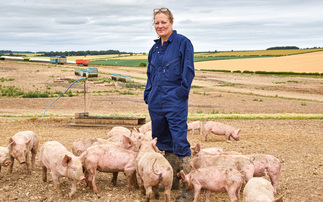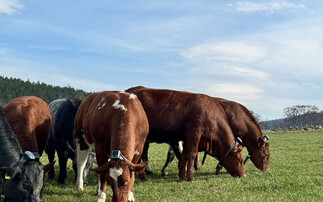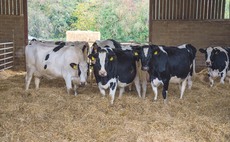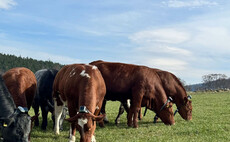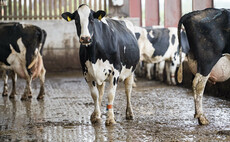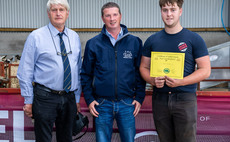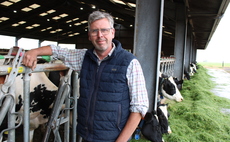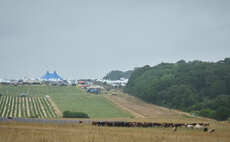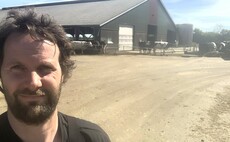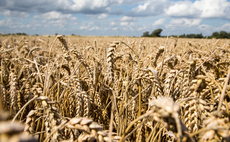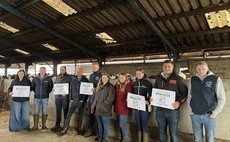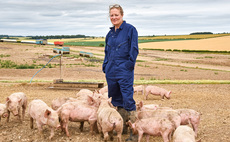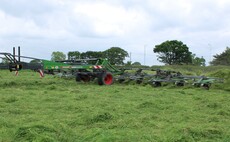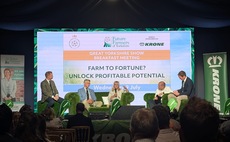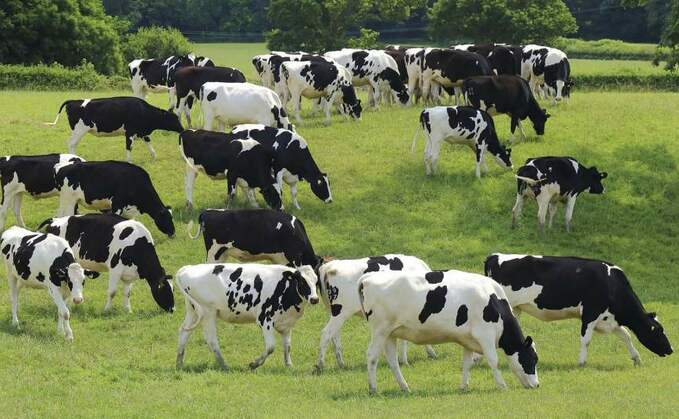
Íæż½ã½ã from all parts of the UK are reporting a positive impact on many areas of cattle health since embarking on BVD eradication programmes. And with the extension of funding for BVD Stamp it Out in England until June 2021, accompanied by a target of an additional 2,500 herds signing up, hopefully more farmers will see the benefits soon.
Remaining vigilant, even if your herd is clear of the virus, is important.
A recent Europe-wide study conducted by Boehringer Ingelheim Animal Health established that cattle in endemically infected herds which were not protected against BVD produced up to 1.8 litres less milk per day during early lactation, even in the absence of clinical signs of BVD infection1 .
Dr Ailsa Milnes, vet adviser at Boehringer Ingelheim, says: "The Advance study is the biggest of its kind and, by studying Bovela® vaccinated cows and non-vaccinated cows in commercial farm settings, set out to fully evaluate the impact of BVD in dairy herds.
"The persistently infected [PI] For more information, visit makebvdhistory.co.uk/milk-production animal is central to the control of BVD on-farm, and so eradication hinges around the identification and removal of PIs.
"However, biosecurity measures to prevent the introduction, or re-introduction, of BVD into an unvaccinated herd, supported by effective vaccination to protect the foetus, are also hugely important to prevent the transmission of BVD." When BVD breakdowns are reported in countries with established, compulsory eradication programmes, such as Scotland and Northern Ireland, going back through herd records often reveals an unintended lapse in biosecurity is behind the virus re-establishing in a herd.
Dr Milnes says: "Full biosecurity at all times is virtually impossible to achieve, and for many farms an unrealistic aim.
Stock are moved, brought onto the unit, may be next door to unknown stock, reared away and taken to mart, not sold and brought back.
These are all times when, unknowingly, stock could be infected."
What was found?
Animals from a number of herds throughout Europe were studied and records from 1,197 animals were analysed for a year, providing data from 1,559 separate lactations.
Dr Milnes says: "BVD infection affects many aspects of the cow, and this can go on to impact milk yield.
Its impact on fertility, early abortion and increasing the calving interval are well known, but BVD also affects growth, reduces appetite, suppresses the animal's immune system and directs energy from the diet into fighting infection.
"Together, these add up to reduced milk production." One of those involved in the study, Dr Ellen Schmitt, based in France, welcomed the findings and was surprised to see how much milk production can be affected by unseen BVD in a dairy herd.
She says: "The Advance study has completely changed my appreciation of how BVD can impact a farm.
I was shocked at the impact BVD has on milk production.
"This study shows it is not just farms with poor fertility as a result of BVD which would benefit from vaccination."
Ongoing BVD control
Dr Milnes says: "As PI animals are removed from the cattle population, so the pool of animals capable of spreading virus reduces, yet we still see outbreaks on a fairly regular basis and often with devastating consequences.
"And now understanding the significant losses which can be attributed to the virus being present but unseen in a milking herd, are two very good reasons to re-evaluate your BVD control in conjunction with your vet." With testing and surveillance yet without vaccination, a herd will become naive.
Dr Milnes adds: "Without 100% biosecurity at all times and as their natural immunity decreases, stock will be highly susceptible to infection2 .
With the ever-present threat of BVD infection, annual vaccination with Bovela® will protect herds against the devastating effects of BVD outbreaks.
"The vaccinated cows produced more milk than the unvaccinated ones and the economic benefit for the farmer, in terms of milk production, was up to £44 at 26ppl, and no post-vaccination drop in milk production was seen." A cost calculator has been produced, showing potential return on investment for vaccinating a whole milking herd, see above left, or visit makebvdhistory.co.uk/ milk-production.
Dr Milnes says:"Anyone can input their own figures into this and quickly and easily see how herd performance, both in terms of yield and economics, could improve."
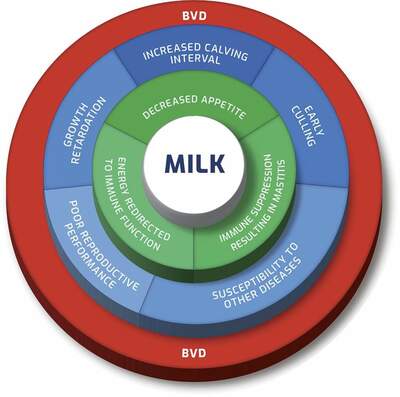
What is BVDFree?
BVDFree England is a voluntary industry-led scheme, working to eliminate BVD from all cattle in England. Currently, it covers 6,100 herds (39% of beef and dairy breeding animals in England).
The key to success is to identify and remove all PI animals with the BVD virus from the English cattle herd.
By understanding the losses BVD can cause on-farm, it confirms that BVD control is essential to farm performance and that work with your vet under schemes like BVDFree help you to avoid such losses.
Click here to visit the BVD homepage on Íæż½ã½ãguardian.com







